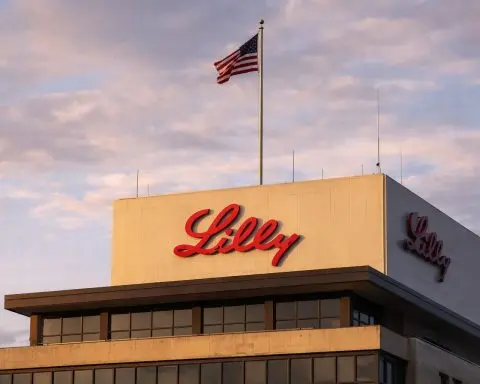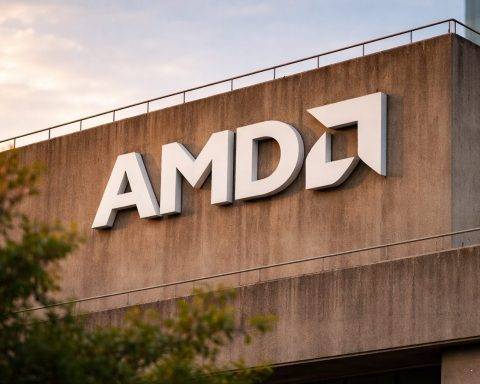For the period August 16–17, 2025, the biotech, pharma, medical, and health sectors saw a range of significant developments worldwide. Below is a comprehensive roundup of top stories categorized by theme, complete with expert insights and source links:
Clinical Trial Results & Study Readouts
- Pfizer’s Sickle Cell Drug Falters: Pfizer reported that inclacumab, a P-selectin inhibitor acquired in its 2022 takeover of Global Blood Therapeutics, failed to meet the primary endpoint in a Phase 3 trial for sickle cell disease reuters.com. The late-stage study showed no significant reduction in vaso-occlusive pain crises versus placebo, marking a major setback reuters.com. It’s the second disappointment from the GBT acquisition – Pfizer had already withdrawn the drug Oxbryta in 2024 over safety issues reuters.com. “Pfizer’s acquisition of Global Blood has proven disappointing with inclacumab’s failure coming after Oxbryta’s 2024 withdrawal… previously estimated $3 billion in revenue now seems unlikely to materialize,” noted BMO analyst Evan Seigerman reuters.com. Pfizer expressed continued commitment to sickle cell patients and will focus on its other therapies, including gene-targeted treatments recently approved by rivals (e.g. Vertex/CRISPR’s Casgevy, Bluebird Bio’s gene therapy) reuters.com. The news underscores the challenges in developing new sickle cell drugs and puts pressure on Pfizer’s remaining pipeline in this area.
- Immunotherapy Combo Boosts Bladder Cancer Survival: In more encouraging trial news, Pfizer and Merck’s combo of Padcev (enfortumab vedotin) plus Keytruda (pembrolizumab) significantly improved survival in patients with muscle-invasive bladder cancer when given before and after surgery reuters.com. Interim Phase 3 results showed the antibody-drug conjugate (Padcev) plus PD-1 inhibitor (Keytruda) prolonged event-free survival and overall survival compared to surgery alone reuters.com. “These latest results underscore the practice-changing potential of this combination in earlier stages of bladder cancer,” said Dr. Johanna Bendell, Pfizer’s oncology development chief reuters.com. Muscle-invasive bladder cancer is aggressive with high relapse risk reuters.com, so experts say the findings could expand curative treatment approaches. Pfizer (with partner Astellas) plans to discuss the data with regulators worldwide for potential approvals of the regimen, which would become the first perioperative systemic therapy proven to benefit this hard-to-treat cancer reuters.com.
Drug & Device Approvals
- Wegovy Wins FDA Nod for Fatty Liver Disease: Novo Nordisk’s blockbuster GLP-1 drug Wegovy (semaglutide) received accelerated approval from the U.S. FDA to treat metabolic dysfunction-associated steatohepatitis (MASH), a serious fatty liver disease reuters.com. This makes Wegovy the first GLP-1 therapy cleared for MASH, which affects roughly 5% of U.S. adults reuters.com. The decision, announced Aug. 15, was based on part 1 of an ongoing trial showing Wegovy improved liver condition and scarring in more patients than placebo reuters.com. “There really have not been good treatments in this space… we need better medications that prevent progression of the disease,” explained Dr. Jason Brett, Novo’s U.S. medical lead reuters.com. Novo is now pursuing approvals in Europe and Japan reuters.com. Rival Eli Lilly’s tirzepatide has also shown promise in MASH, highlighting a high-stakes race to address fatty liver disease. Wegovy’s expanded use could strengthen Novo’s lead in metabolic disorders beyond diabetes and obesity.
- Tonix’s Fibromyalgia Drug – First New Therapy in 15 Years: Patients with fibromyalgia, a chronic pain and fatigue condition, gained a new option as the FDA approved Tonix Pharmaceuticals’ TNX-102 SL (Tonmya) on Aug. 15 reuters.com. Tonmya is a sublingual (under-tongue) formulation of cyclobenzaprine taken at bedtime to improve non-restorative sleep and ease fibromyalgia symptoms reuters.com. It is the first new fibromyalgia drug since 2009, offering an alternative to older treatments like Lyrica and Cymbalta reuters.com. “This is the first time a drug has been developed to target non-restorative sleep, which we think plays an important role in fibromyalgia,” said Tonix CEO Seth Lederman reuters.com. In two Phase 3 trials, Tonmya significantly reduced daily pain versus placebo at 14 weeks reuters.com reuters.com. Experts note new therapies are sorely needed, as existing meds have limited efficacy. Analysts estimate Tonmya’s U.S. sales could reach hundreds of millions annually, reflecting pent-up demand in this under-served condition.
- Precigen’s Gene Therapy Approved for Rare Disease:Precigen Inc. scored FDA approval for PRGN-2012 (brand name PapilLOOPTM), an innovative immunotherapy for recurrent respiratory papillomatosis (RRP) reuters.com. RRP is a rare disease where HPV causes benign but recurring tumors in airways, often requiring repeated surgeries. PapilLOOP is the first approved treatment for RRP, and in trials 51% of adult patients needed no surgeries in the year after therapy reuters.com. The approval (granted Aug. 15) sent Precigen’s stock soaring 83% on Friday reuters.com reuters.com. The therapy works by stimulating an immune response against HPV-6 and 11-infected cells to control tumor growth reuters.com. Observers note that randomized trials were not required for this approval – an example of FDA’s flexibility for serious rare diseases reuters.com. Precigen plans to accelerate manufacturing and seek broader use of the platform in other HPV-driven conditions. The RRP community, which until now relied solely on surgery, welcomed the news of a long-awaited medical therapy.
Mergers, Acquisitions & Partnerships
- BioNTech to Acquire CureVac – mRNA Pioneers Unite: In a major biotech merger, Germany’s mRNA vaccine trailblazers BioNTech and CureVac announced a definitive agreement under which BioNTech will acquire all outstanding shares of CureVac curevac.com. The all-stock deal is valued around $1.25 billion and is expected to close by end of 2025, pending approvals. This union resolves all patent litigation between CureVac (and partner GSK) and Pfizer/BioNTech over mRNA COVID-19 vaccines curevac.com curevac.com. “By entering into a definitive purchase agreement with BioNTech, we intend to unite two highly complementary German companies… Together, we believe we can deliver significant benefits to patients with mRNA-based immunotherapies and realize our full potential in a combined company,” said CureVac CEO Dr. Alexander Zehnder curevac.com. Analysts note merging these R&D teams “can create significant opportunities across [their] collective platforms, establishing the combined company as a global leader in mRNA-based medicines.” The deal marks a post-COVID consolidation and could accelerate development of new mRNA treatments for cancer and beyond.
- Lilly’s $1.3 Billion AI Drug Discovery Deal: Pharma giant Eli Lilly is betting big on artificial intelligence – signing a collaboration worth up to $1.3 billion with startup Superluminal Medicines to develop new drugs for obesity and metabolic diseases reuters.com. Announced Aug. 15, the partnership gives Lilly exclusive rights to compounds discovered on Superluminal’s AI-driven platform targeting GPCRs (G-protein coupled receptors), a class of proteins involved in metabolism reuters.com. Superluminal will receive upfront payments, R&D milestones, an equity investment, and potential royalties reuters.com reuters.com. Lilly already dominates the $150 billion obesity market with injectables, and is now aiming to develop next-generation oral therapies via AI reuters.com. “GPCRs have established themselves as very important targets in the obesity and cardiometabolic landscape, but we’re at the very early stages of exploration of the target class,” Superluminal CEO Cony D’Cruz told Reuters, highlighting the promise of combining AI with novel biology reuters.com. The deal follows a trend of large drugmakers partnering with AI biotechs to boost R&D productivity. It comes on the heels of Novo Nordisk’s $2.2 billion May deal with Septerna (another GPCR-focused biotech), underscoring intense competition to extend leadership in metabolic therapeutics.
Public Health Alerts
- Measles Outbreak Worsens in the Americas: Health authorities are alarmed by a rapidly growing measles outbreak across the Americas, with cases up 34-fold over last year ts2.tech. The Pan American Health Organization (PAHO) reported over 10,100 cases and 18 deaths as of August 8, spanning 10 countries ts2.tech. The majority of fatalities have occurred in Mexico (14 deaths), with additional deaths in the U.S. (3) and Canada (1) ts2.tech. PAHO blamed “alarmingly low” vaccination coverage, noting 71% of cases are in unvaccinated people ts2.tech. “Measles is preventable with two doses of vaccine… To stop these outbreaks, countries must urgently strengthen routine immunization and conduct targeted campaigns in high-risk communities,” urged Dr. Daniel Salas, PAHO’s immunization chief ts2.tech. Many victims in Mexico have been unvaccinated Indigenous individuals, illustrating the tragic consequences of immunity gaps ts2.tech. Given measles’ extreme contagion, officials warn it can “spread rapidly among unvaccinated people, especially children,” and are rushing to boost vaccine uptake ts2.tech. In the U.S., meanwhile, Kansas health authorities signaled an end to a local measles outbreak after weeks with no new cases, showing that aggressive containment measures can work. Public health experts say this resurgence, 25 years after measles was declared eliminated in the U.S., is a wake-up call on declining vaccination rates.
- Chikungunya and Global Travel Advisories: In parallel, the U.S. CDC issued travel advisories for chikungunya, a mosquito-borne virus, amid outbreaks in parts of Africa, Asia, and Latin America ts2.tech. As of mid-August, significant chikungunya transmission was noted in Kenya, Somalia, Madagascar, Sri Lanka, and Bolivia, among other locations ts2.tech. Travelers to these regions are urged to take precautions against mosquitoes. Chikungunya causes high fevers and joint pain and has no specific treatment, so prevention is key. The alerts follow similar notices in recent weeks for dengue in Bangladesh and malaria in the Horn of Africa, highlighting how global mobility and climate shifts are facilitating the spread of tropical diseases. Health officials stress the importance of One Health approaches and international information-sharing to detect and respond to such outbreaks quickly. These developments underscore the need for vigilance in global public health as travel rebounds to pre-pandemic levels.
Research & Medical Breakthroughs
- $2 “One-Drop” Blood Test Detects Diseases in 15 Minutes: Scientists at Arizona State University unveiled a low-cost diagnostic tool, dubbed NasRED, that could revolutionize disease detection sciencedaily.com. This point-of-care test uses gold nanoparticles and a single drop of blood to detect infections like COVID-19, Ebola, HIV, and Lyme disease within 15 minutes sciencedaily.com. Remarkably, NasRED’s nano-sensors are almost 100,000 times more sensitive than standard lab tests, able to flag disease markers even at just a few hundred molecules in a sample sciencedaily.com sciencedaily.com. It delivers PCR-level accuracy without complex equipment, and each test is estimated to cost only $2, making it ideal for remote or low-resource settings sciencedaily.com sciencedaily.com. “We have the speed and ease of a rapid antigen test with sensitivity even better than lab-based tests,” said lead researcher Chao Wang sciencedaily.com. The device, which shines light through a tiny tube of treated sample to detect nanoparticle clumping, correctly distinguished COVID-19 from other infections in trials sciencedaily.com. NasRED could enable early detection of outbreaks in the field – catching diseases before they spread. While currently a benchtop prototype (requiring small mixers/spinners), the team is working to miniaturize it further. Experts call it a potential “game changer” for global health, especially in developing regions, if it proves robust in real-world conditions sciencedaily.com sciencedaily.com.
- Dementia Often Diagnosed Years Late: A new international study highlights significant delays in recognizing dementia, suggesting many cases are mistaken for normal aging. The University College London-led meta-analysis found that, on average, patients wait 3.5 years from first symptoms to an official dementia diagnosis scitechdaily.com. For those with early-onset dementia (symptoms before age 65), the delay is even longer – about 4.1 years – often because doctors attribute memory issues in younger patients to stress or other factors scitechdaily.com scitechdaily.com. The review spanned 13 studies with over 30,000 patients across Europe, the U.S., Australia, and China scitechdaily.com. “Timely diagnosis of dementia remains a major global challenge, shaped by a complex set of factors… specific healthcare strategies are urgently needed to improve it,” said lead author Dr. Vasiliki Orgeta of UCL scitechdaily.com. Contributing factors include stigma, low public awareness, and healthcare system inefficiencies – e.g. limited access to specialists and under-resourced memory clinics lead to people being evaluated late scitechdaily.com. The study noted only ~50–65% of dementia cases are diagnosed in high-income countries (and far fewer in low-income settings) scitechdaily.com. Researchers urge multi-pronged action: public campaigns to educate about early symptoms (e.g. distinguishing them from “normal” aging), better training for clinicians to recognize cognitive decline sooner, and expanded memory clinic services scitechdaily.com scitechdaily.com. Earlier diagnosis, they note, gives patients and families more time to plan care and potentially access treatments or trials that can slow disease progression.
Healthcare Policy & Industry Trends
- U.S. Weighs Tariffs to Boost Drug Manufacturing: The intersection of trade policy and healthcare came into focus as U.S. President Donald Trump signaled plans to impose tariffs on imported pharmaceuticals to encourage domestic production. In an interview, Trump said the U.S. would start with a “small tariff” on pharma imports and ratchet it up to 150% within 18 months and 250% eventually reuters.com. The administration has framed this as a national security issue after COVID-era supply scares, aiming to reduce reliance on foreign APIs and drugs. Several drugmakers have preemptively responded by pledging major U.S. investments – for instance, AstraZeneca recently committed $50 billion to expand its American manufacturing footprint reuters.com. Notably, a trade framework with the EU caps any new U.S. pharma tariffs at 15% under current agreements reuters.com, limiting how far such measures can ultimately go without renegotiation reuters.com. Industry groups have pushed back, warning that high tariffs could spur drug shortages or price hikes if not coordinated carefully. This tariff talk comes as part of a broader “reshoring” push in the healthcare supply chain – including efforts to incentivize local production of generics and critical drug ingredients. Policymakers in Europe and Asia are watching closely; earlier this year a group of EU health ministers likewise urged reducing dependence on overseas suppliers for vital meds, calling it a strategic vulnerability. While any U.S. pharma tariffs are likely many months away, the debate is already influencing corporate strategies and transatlantic trade discussions.
- Abortion Pill Access and Corporate Stance: In the ongoing U.S. healthcare culture wars, retailers are navigating conflicting pressures on reproductive health products. Notably, Costco announced it will not stock the abortion pill mifepristone across its U.S. pharmacies, citing a lack of member demand reuters.com. The wholesale retailer clarified that this was not a change – it never carried the drug – but the statement came as several pharmacy chains face political scrutiny over dispensing the pill. “Our position…not to sell mifepristone, which has not changed, is based on the lack of demand from our members… who generally have the drug dispensed by their medical providers,” Costco said reuters.com. The decision coincides with legal battles over mifepristone’s FDA approval and intense lobbying by anti-abortion groups. Earlier this year, Walgreens also said it would not dispense mifepristone in certain states after pressure from GOP attorneys general. These moves highlight how health policy fights at the state and federal level are influencing corporate pharmacy policies, potentially affecting patient access. Reproductive rights advocates argue that pharmacy limitations create further hurdles for women seeking medication abortions, especially in states with clinic restrictions. With a pivotal court ruling on mifepristone’s status expected later in the year, pharmacies find themselves on the front line of a national policy divide – weighing legal risk, patient need, and public relations in their decisions.
Each news item above includes direct source references for verification. This roundup spans clinical trial outcomes, drug approvals, industry deals, public health alerts, research breakthroughs, and policy updates from around the globe during August 16–17, 2025, keeping you up to date on the latest developments in the biotech, pharma, medical, and health sectors reuters.com ts2.tech. All signs indicate that the pace of innovation and change in healthcare remains as brisk as ever – from lab discoveries and regulatory milestones to boardroom shakeups and public health challenges – ensuring plenty more to watch in the weeks ahead.









